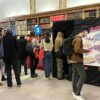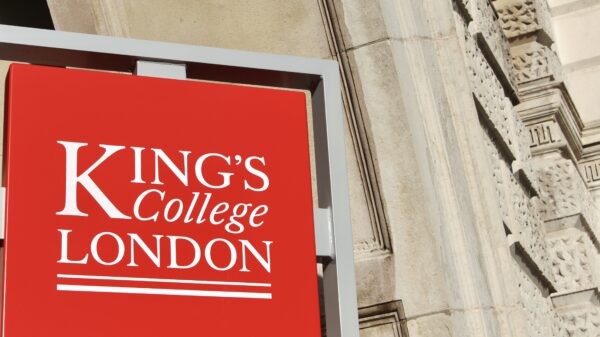In an eventful evening, King’s and UCL students did what they do best: argued with each other. As if they needed an excuse to do that, an official debate was organised between the two. This time the topic was more ethically-tinted than ancient Varsity or budding meme battles: the media’s moral obligation to protect the anonymity of its sources.
The ‘KCL vs. UCL Debate’ took place in a Strand lecture theatre on Thursday evening and was attended by around 30 students. Organised by the King’s Philosophy Society and its UCL counterpart, the event is first of a monthly joint debate series on philosophical topics. The motion debated? ‘This House believes that the media has a moral obligation to protect anonymous sources’.

‘If anonymity is lost, we will plunge in a state of ignorance’
Although it is a truth universally acknowledged that you must always reference properly at University, when it comes to media things get morally murkier. Think of Watergate. Had ‘The Washington Post’’s Carl Bernstein and Bob Woodward revealed the identity of ‘Deep Throat’, who knows if Nixon would have resigned? An Academy Award-winning film would certainly had not been made, and some journalists, including some of Roar’s own, would maybe not have chosen this career path.
King’s team took on the part of the opposition, whilst UCL acted as proposition. The UCL team won the debate by public vote.
The debate followed a shorter Mace-style format with time for audience participation. The organisers expressed their intention to try out different formats throughout the series.
Round One: States of Ignorance and Moral Duties
The UCL team started the debate, cutting straight to the chase with a sharp argument: it’s either anonymity or nothing. Richard, the proposition’s first speaker, argued that, firstly, revealing the identity of the source is ‘a violation of that persons’ rights, as it is contractually bound’.
Moreover, it creates a dangerous precedent: ‘If journalists have to take the anonymity away from their sources, it makes their job impossible’, as less people will be willing to come forward. But anonymous sources are often the ‘ only key to unlocking a big story’. See Watergate.
‘If anonymity is lost, we will plunge in a state of ignorance’.
Next in line was Martin, KCL’s first debater, who introduced an interesting point: ‘Journalists are no longer all of media’, pointing out that the term media has come to encompass all sorts of platforms, such as personal blogs, Twitter accounts… even ‘The Tab’.
‘Surely a single newspaper, a single news channel giving up an anonymous source once, where it’s absolutely necessary, will not put everyone off at once.’ There are, he claims, degrees in the right to be disclosed.
Martin then went on to argue that ‘Journalists have a moral obligation to stand by what’s right. If a criminal comes to you and confesses to a crime, it is your duty to turn them in.’
‘There are some cases where protection of anonymity is vital. In these cases, it is your duty to protect these sources. But this duty does not come from being a journalist, it comes from being human.’
‘Journalists are not just journalists. They are humans first.’
Round two: UCL strikes backÂ

UCL Strikes Back
It is then the proposition’s turn to defend its position. Speaking of criminals, Scott, UCL’s second speaker, counterstrikes by saying that he is far more concerned about criminals who have power: ‘Anyone can be a criminal without power. The far bigger problem are the criminals who have the full force of the government behind them. Criminals who journalists have the duty to uncover.’
‘How will the government react when it finds out about members of the state who have given information to the media? These people have done nothing wrong and we must protect them.’
‘We must protect the rights of these sources; otherwise we will slip into an authoritarian system before we know it, and we will lose our rights.’
The opposition then had the last word. KCL’s Daniel raises the point that this debate is ultimately about morality, not the law.
The media has this ‘general policy of never losing an anonymous source’ and becomes ‘the court of public opinion’. This is problematic, he argues: instead of taking the issue to the real court, you take it to the press.

KCL’s got the last word
‘We’re not saying that the media should publish all its sources, because that could potentially hurt them. But if there is something illegal going on, it has the obligation of turning them in to the authorities or turning them away.’
Question Time
Next up, the debaters took questions from the audience.

One question posed to the opposition team raised a challenging issue: the media is, for some, the last resort to seeking justice – wouldn’t disclosing anonymity deny the legitimacy of this?
In response to that, the King’s team enforced its previous arguments: ‘Legality is a bit of a distraction from the main argument. There are special cases where the media has a moral obligation of turning in their sources.’
In contrast, the UCL debaters firmly stated that this assumes a dangerous dependence on the authorities:
‘If I were an anonymous source coming forward, and if I was told that the state was there to mediate my anonymity, I would not be comfortable with it.’
‘I would not put that much trust into the state, and neither should you.’
The End
The debate was won by our Gower Street rivals, as voted by the audience.
Un-anonymous sources disclosed that the participants headed straight to the Philosophy Bar, not to drown their sorrows, but celebrate an interesting (and peaceful) debate.
Reporting by Alex Clayton Amin, Irina Anghel, Rebekah Evans, Petra Lindnerová, Halim Kim, and Tara Sahgal
Photography by Jared Phanco














